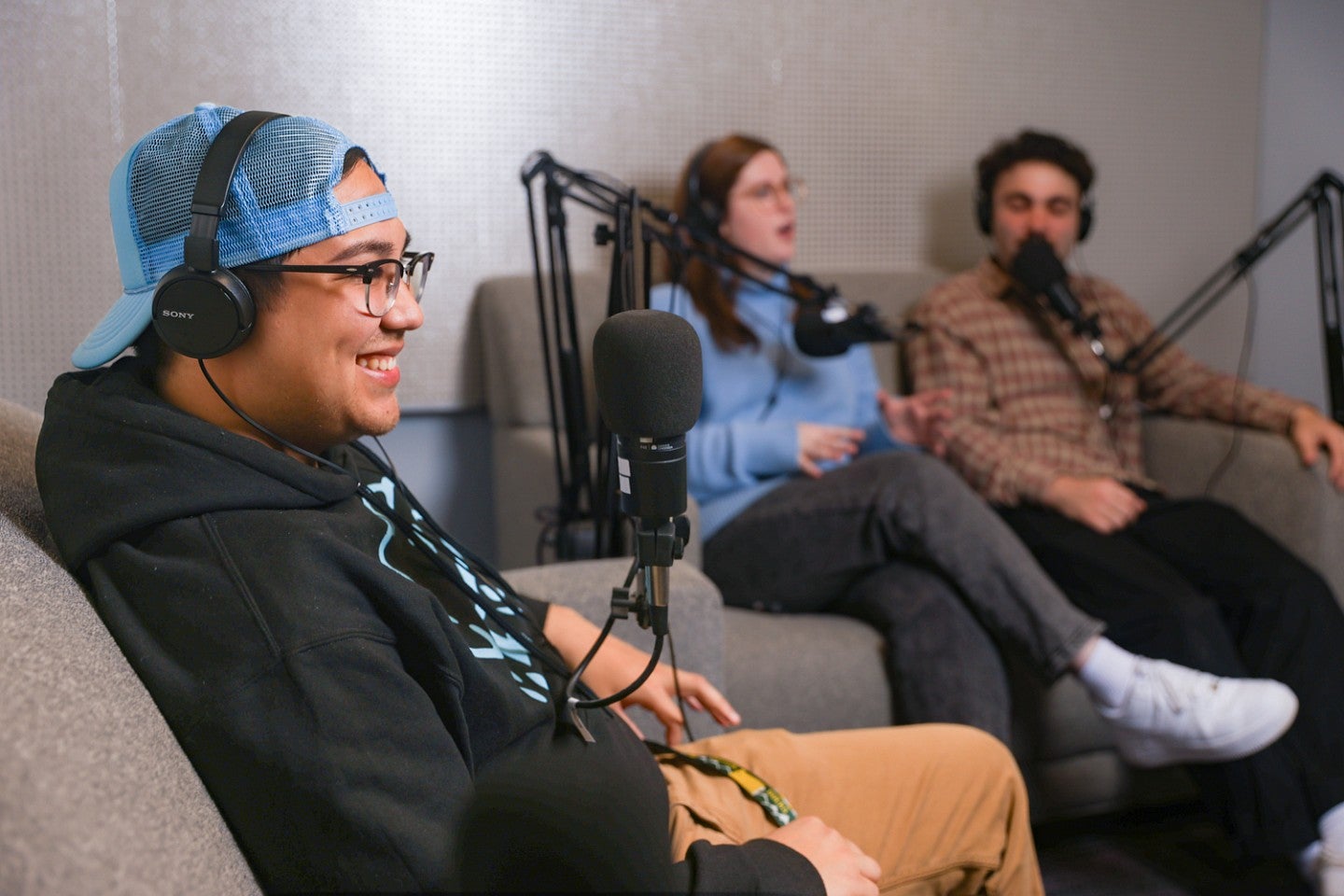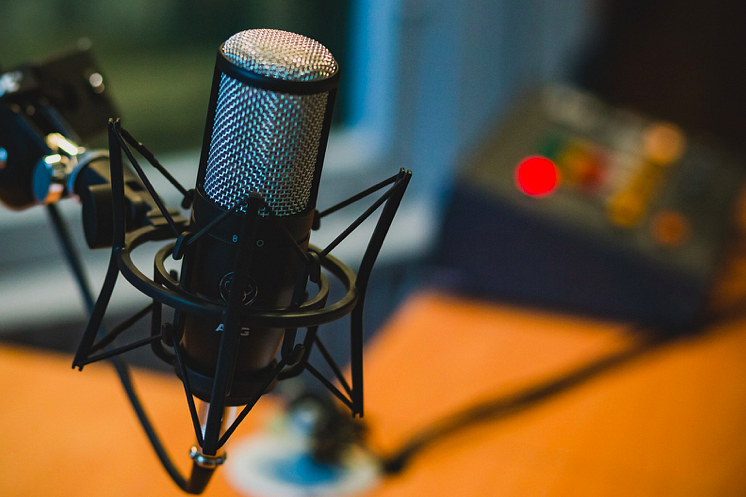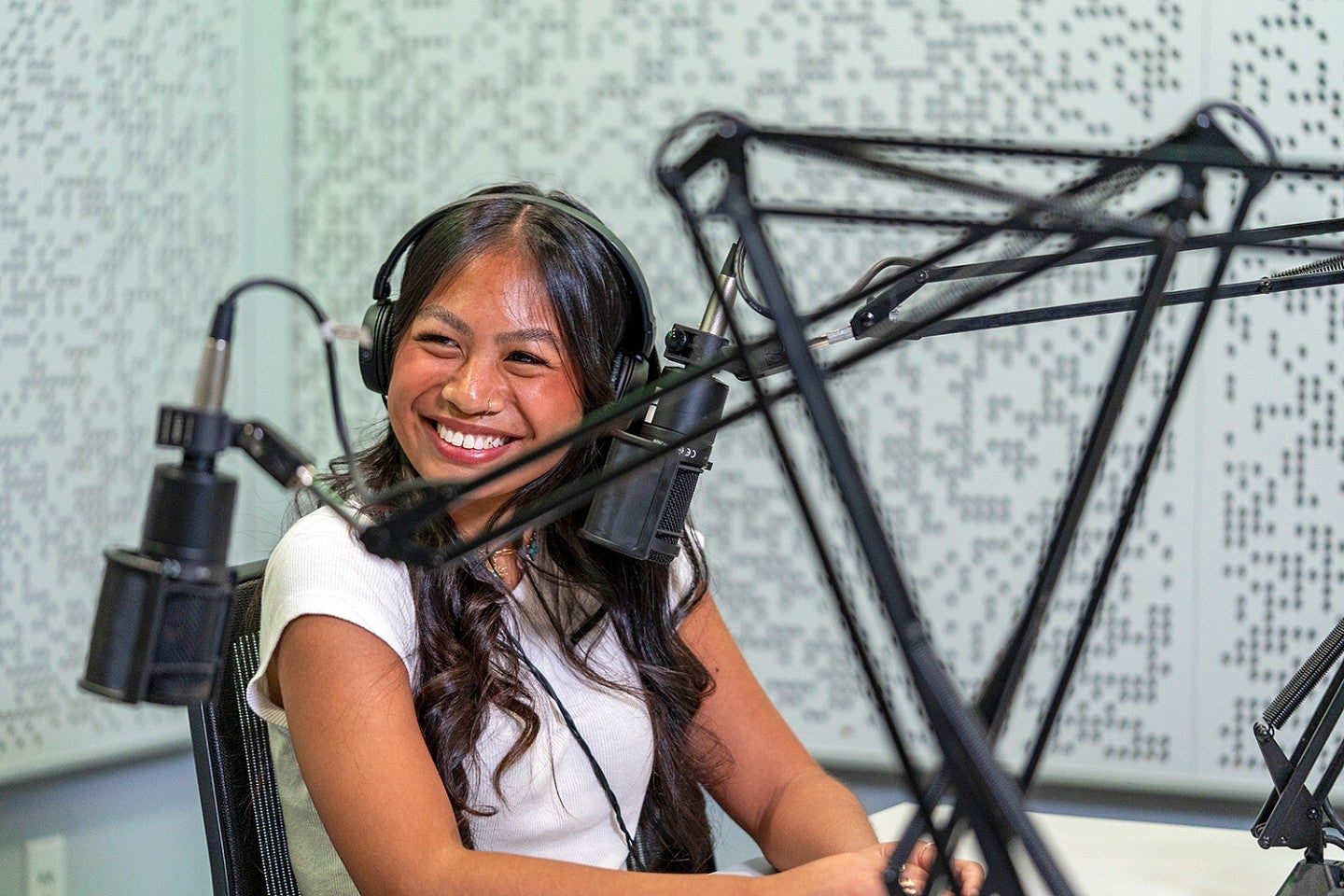The SOJC’s new Community Podcasting Microcredential prepares individuals and organizations to tell stories that make an impact.
by Leo Heffron, Class of ’26

Scroll long enough and everything starts to blur — ads, posts, videos all fighting for your attention. Podcasts cut through that noise. They’re more focused and built for real connection because of the intimacy of hearing someone’s voice. Whether you’re sharing a passion, digging into issues that matter or just having honest conversations, podcasting gives people a reason to actually listen.
There are plenty of reasons to create your own podcast, but three stand out:
1. Podcasting amplifies your voice.
If you want to be heard — about a social issue you’re passionate about or a favorite hobby, or simply to connect with an audience — creating a podcast amplifies your voice. It’s a direct line to listeners who care about what you have to say.
Professor of Practice Andrew DeVigal, director of the Agora Journalism Center, says podcasting is an avenue for advocacy and activism. “If you’re passionate about a cause or working for change, podcasting can be a powerful way to elevate the voices of those most impacted,” he said. “It gives people the platform to tell their own stories — not just about what’s happening, but why it matters.”
DeVigal teaches a Community Voices course to students in the Multimedia Storytelling Master’s program at the UO School of Journalism and Communication (SOJC). That course will also be included in the Community Podcasting Microcredential, a program that allows learners to earn a podcasting professional certificate. The credits can also count toward the master’s degree down the road.

2. Podcasting builds transferable skills.
Producing a podcast teaches you about far more than just talking and interviewing. You’ll learn audio editing, researching, story structure and public speaking — skills that are valuable not only in journalism but in all communication fields, including public relations, advertising and strategic communication.
DeVigal says podcasting is more than just a medium for storytelling.
“Producing a podcast isn’t just about speaking into a mic — it’s about learning how to listen, facilitate and provide context when you’re hearing multiple perspectives,” he said. “Those are skills you can carry anywhere.”
3. Podcasting builds and strengthens communities.
Local journalism needs fresh ways to connect with audiences. Audio is an ever-growing medium that engages people where they are. Podcasting accomplishes that. Hosting conversations with community members brings overlooked issues and stories to light, builds relationships and creates a space for local voices to be heard.
“By centering communities in the work we’re doing, we’re amplifying voices that are often underheard or underrepresented in local media — and podcasting is such a natural fit for that because it’s so intimate,” DeVigal said.
If you’re ready to grow in any of these areas, the SOJC’s Community Podcasting Microcredential is a great place to start. This professional certificate opens the door to hands-on experience in audio storytelling, audience building and creating the kind of impact that lasts.
Leo Heffron is a fourth-year journalism major at the SOJC, with a minor in Spanish. He enjoys writing about various topics, but fashion and social issues are his favorites. You can find his work in The Daily Emerald.


